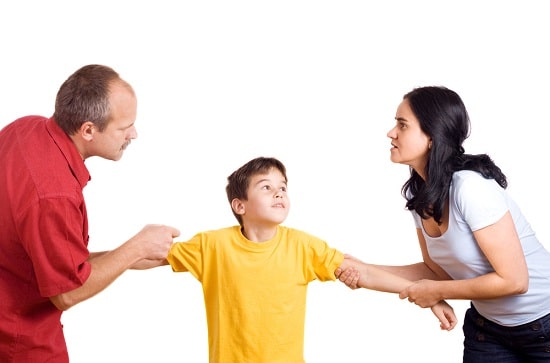How Do Arguments Affect My Child(ren)?

Disagreements between parents is normal. However, frequent, heated disagreements can have a significant effect on your child. How parents treat each other plays an important role in a child’s overall well-being, potentially affecting their mental health, academic performance, and future relationships. Since children mimic their parents’ behaviour, both subconsciously and consciously, this can significantly impact their own communication in the future.
Children exposed to chronic inter-parental conflict also showed signs of disrupted early brain development, mental health problems (anxiety and depression), increased heart rate, stress hormone responses, sleep disturbance, and conduct disorder.
Here are other several negative effects of arguing in front of your children:
- Insecurity – A home should be a haven of love and care. When parents constantly argue, it can result in chaos and tension. This can make children feel anxious, frightened, and at some times, helpless. All of these negative feelings can cause insecurity and instability, which can continue to be problematic later in life.
- Feelings of Guilt and Shame – When children see and hear their parents arguing, they could believe that they are the reason behind the argument. This results in the child feeling guilty and distressed.
- Low Self-Esteem – When children feel insecure, guilty, and distressed, it can make them feel unwanted and unworthy. Low self-esteem can cause damaging effects on their personal and professional relationships in the future.
- Poor School Performance and Health Issues– Children who witness conflicts between their parents may have difficulty focusing on their studies, adversely affecting their academic performance. Additionally, physical ailments and chronic illnesses can be a result of chronic fear or worry. A University of California, Los Angeles review showed that children who grow up in a dysfunctional environment are more prone to physical health problems in adulthood.
- Pressure on Taking Sides – All children love to please their parents. When parents fight, children may feel confused about taking sides. Since they may not clearly understand the reason behind the conflict, taking sides could be problematic. As parents, you should never force your children to take sides in an argument between you and your spouse.
- Normalization of Negative Communication – Negative communication (physical and emotional abuse, fighting, arguing, and name-calling) can become normal to children if they witness it often. Because of this, children may think that these behaviours are acceptable.


How to be a Good Role Model to Your Children

Being a role model can mould your children into better individuals in the future. If arguments cannot be avoided, take a timeout to cool things down so that your children can witness a more respectful way of solving an argument. Parents should always speak to each other with respect and kindness in front of their children.
If you require professional help, a licensed counsellor can provide children with counselling services to increase their comfort and well-being. Call Wendy Limarzi’s Depression & Relationship Counselling Services in Windsor, Ontario at (519) 253-1519 to schedule an appointment.
